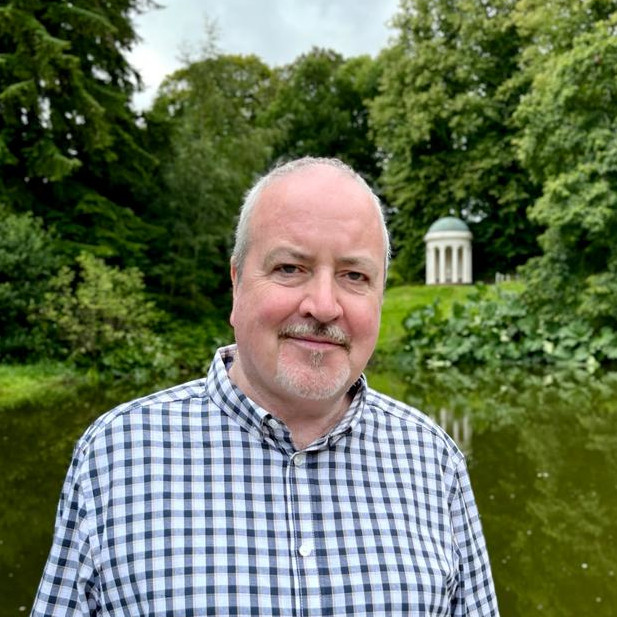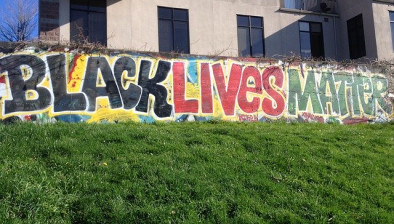Lawyer of the Month: Darragh Mackin

Darragh Mackin
It’s certainly been an eventful summer for partner Darragh Mackin at Belfast solicitors Phoenix Law.
Many of the firm’s cases have been in the public eye, and probably none so much as the discrimination case successfully brought by Irish language rap group Kneecap against the UK government after former business secretary Kemi Badenoch refused them funding.
Then, last month, Mackin was reported as leading the ‘dream team’ from Phoenix after Kneecap’s Liam Óg Ó hAnnaidh, who uses the stage name Mo Chara, was charged by British police with a terrorism offence over the alleged display of a flag in support of Hezbollah at a London gig in November 2024. Ó hAnnaidh will appear for the next hearing at Westminster Magistrates’ Court in August.
Amid this publicity (including the recent media frenzy over Kneecap’s appearance at Glastonbury), Phoenix Law was awarded the Special Merit Award at the LEAP Irish Law Awards 2025 held in Dublin in June, becoming the first and only Northern Ireland-based firm to win this accolade.
Mackin says: “Awards such as these would not be possible without the trust and commitment of the clients who we have the privilege of representing. They are the real heroes in the various litigation stories.”
These stories have included his appearing in some of the most high-profile cases in Ireland and internationally: acting for the Hooded Men in their victory in the London Supreme Court, for Sarah Ewart in her challenge to the law on abortion in Northern Ireland, and the families in the Stardust fire inquest (the fatal fire in a Dublin disco in 1981) in which a verdict of unlawful killing was returned.
He is currently acting for the Summerland families in their campaign for a fresh investigation into the fire on the Isle of Man in 1973 that resulted in the deaths of 50 people and the serious injury of 80.
For someone who clearly does not shun some of the most contentious cases, Mackin sounds surprisingly calm and relaxed — though he is passionate about Phoenix Law’s raison d’être and is clearly proud of its accomplishments.
“When we were set up in 2018, our premise was to build upon the concept of the brand of the team.
“The name Phoenix was chosen to ensure that it wasn’t just about any one or two lawyers — rather about the collective efforts of everyone involved and the LEAP award was testament to the success the team has generated in the last few years.”
He explains the evolution of the idea: “We had a vision of doing things differently. Primarily that was to create a boutique human rights firm that had at its epicentre strong convictions and principles regarding the protection of human rights, but which would deliver on a commercial scale.
“Our gripe has always been that people have tended to see human rights lawyers as having holes in their shoes, while commercial lawyers inhabited the big glass offices.
“We wanted to show that in the David versus Goliath battles, even the victims of human rights abuses could compete against governments, big tech and international corporations on the international scale, so we set up Phoenix as an international human rights firm that could take on governments, corporations and big tech across the world.”
This has resulted in his being instructed and advising on cases in the USA, Spain, France, Italy, Sri Lanka, Malawi, the Cayman Islands and St Helena, while he also appears on behalf of Basque prisoners pending consideration by the European Court of Human Rights.
He has also secured some of the largest settlements in the jurisdiction, including the payment of £16.7 million to NI taxi drivers arising from the Covid pandemic, is retained in a high-value claim on behalf of a Chinese-based company initiating action in Belfast, and in a multi-million-euro claim arising out of insurance contracts to hoteliers during that pandemic.
A native of Newry, Mackin graduated in law from Ulster University and then from the Institute of Professional Legal Studies at Queen’s University. He is now an associate lecturer in public and administrative law at UU while also delivering guest lectures at Cambridge, Trinity College Dublin, Dublin City University and QUB.
“As a solicitor I believe it’s important to invest time in what is effectively the future of the profession which includes going to various universities trying to show students what it’s like to be in practice,” he says.
“Also, in terms of professional and personal development, being involved in the academic sphere complements your ability as a solicitor in general because when you combine the two it adds another string to your bow in terms of the lawyer’s skills set.”
One of the first and most significant forks in his career progression, he recalls, was deciding whether to become a barrister or a solicitor. “My focus was always on helping people, so I ultimately decided that becoming a solicitor was a better choice because it enabled me to deal with people head-on.
“And when I started in practice, I wanted to be a human rights lawyer because it’s probably the unique area of law in which you can help make a real difference to people’s lives and — through using litigation — improve their situations, and I’ve been fortunate enough to have seen that.”
Northern Ireland, of course, presents a unique and often tragic backdrop to human rights activity. “Due to the regrettably complex situation here as a society transitioning from conflict, there have been a disproportionate number of human rights cases originating from this jurisdiction.
“There have been a huge number of claims and cases that have gone all the way to the European Court of Human Rights and we operate in a jurisdiction in which there is a complex and novel devolution scenario.
“We have a complex power-sharing executive that has created huge vacuums and impasses in recent years regarding basic human rights issues, that may ordinarily not raise such issues in other jurisdictions.
“For example, where legislators have ordinarily stepped in and legislated in areas such as same-sex marriage and abortion rights, here we entered a territory in which, because of the political backdrop, it became a quite a fractious and contentious area.
“It’s a very simple example of how we have seen the role of the courts featuring proactively and much more frequently than you would ordinarily see perhaps in other jurisdictions, as a result of the complex nature of the constitutional arrangements of this jurisdiction.”
Despite the daunting challenges that Mackin enumerates, he’s not unduly pessimistic about the progress of human rights in Northern Ireland.
“There has been enormous progress in the last decade. However, it has been a bit like a game of snakes and ladders — whenever when we see progress, we step on a snake, and it appears as if we’ve ended up back at the start.”
A classic example of that, he believes, is the Northern Ireland Troubles (Legacy and Reconciliation) Act 2023.
Mackin explains: “Here the UK government introduced an act to try to draw a line on the past — including for perpetrators involved in some of the most serious crimes. So, while there has been progress, there have been unfortunate bumps in the road.
“The thing that does give me great confidence is the rule of law. We’ve seen time and time again that the courts will not be found wanting when required to uphold and stand up for the protection of human rights and give effect to what they’re what they’re ultimately designed to do under the UK Human Rights Act and the fundamental protections under the European Convention on Human Rights.
“Now what victims previously would have got in Strasbourg, they can get in Belfast.”
As many human rights cases involving the UK government have come from Northern Ireland, particularly in alleged abuses by British security forces during the Troubles, and Irish lawyers often represent clients in high-profile cases against the UK in the European Court of Human Right — especially on legacy issues — some might assume that Phoenix Law has a niche clientele. It’s a notion Mackin is keen to dispel.
“I’m particularly proud that we have represented people from every area of society, from republican to loyalist and from government ministers to people who are being oppressed by government.
“The rule of law should be available to everyone and as a lawyer I think we have a great duty to ensure that the law is accessible regardless of your politics, your race, or your social status.
“We at Phoenix Law have a duty to ensure access to justice across all sections of the community.”
He acknowledges that his isn’t exactly a conventional job — and with daughters aged four and two, the fact that it certainly isn’t nine-to-five is especially demanding.
“It is exceptionally time-consuming and becomes more than a job.
“But what makes it all worthwhile is seeing a point of law transformed from a piece of paper to making a real change in someone’s life. Because of your ability you can be a small participant in what can be a very important story.”










